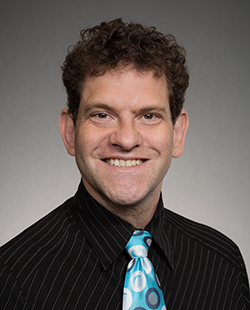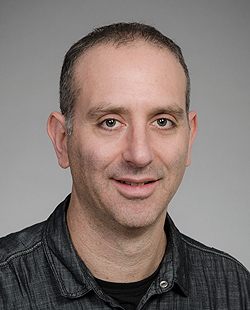
Condition: Addictions and substance use disorders


Mary Larimer
Personal Statement
I have been a member of the department faculty since 1995. My research and clinical interests include 1) prevention and treatment of alcohol and drug problems among adolescents and young adults (with a particular focus on college drinking prevention), 2) prediction of initiation of drinking and trajectories of alcohol and substance use during emerging adulthood, 3) co-morbidity of substance use with depression, suicide, trauma, PTSD, disordered eating, and gambling problems, 4) evaluation of housing and treatment programs for chronically homeless and incarcerated individuals and 5) dissemination of evidence-based prevention and treatment approaches into clinical, school, and work-site settings. I have published more than 100 articles and book chapters on these topics.

Michael McDonell
Personal Statement
My primary interest is on determining how behavioral technologies can be used to improve alcohol and drug abuse outcomes for those suffering from addiction health disparities. Behavioral technologies are non-talk therapy approaches to addiction treatment, such as motivational incentives where we provide rewards for people who abstain from or reduce their drinking. This low-cost, strength based approach to addiction can be implemented in low-resources settings by non clinicians. In fact, our group is investigating how smartphones might be used to implement this treatment, allowing us to reach the millions of individuals suffering from alcohol problems worldwide.
My second research interest in evaluating the accuracy of alcohol biomarkers in addiction treatment settings. These include alcohol urine tests, such as ethyl glucuronide (EtG) and mobile phone linked Bluetooth breathalyzers. These tools allow us to accurately assess the success of alcohol treatments, as well as provide valuable research tools.
Importantly all of my research studies are conducted in collaboration with two communities that suffer disproportionately high rates of alcohol and drug misuse, 1) adults with severe mental illnesses, like schizophrenia and bipolar disorder and 2) American Indians and Alaska Natives. My research team and I work closely with community partners who are providing addiction treatment to these populations with the goal of reducing the burden of alcohol and drug use in these communities.

Daniel Krashin
Personal Statement
Dr. Daniel Krashin is an Assistant Professor at the University of Washington working in Psychiatry and Pain Medicine. He works with both inpatient and outpatient pain patients, clinics and hospital staff to collaborate on treatment of patients, but also works on improving systems of care delivery to benefit patients and populations across the continuum of care. Dr. Krashin has extensive experience working with underserved and vulnerable populations including the chronically mentally ill, recent immigrants, and HIV patients in the treatment of both psychiatric illness and chronic pain. He has lectured extensively and authored a number of publications in the areas of pain management, comorbid pain and psychiatric disorders, substance abuse in the setting of pain treatment, and pharmacology of opioids and other pain relieving medications. He works closely with residents and pain fellows and participates in teaching the future generations of psychiatrists, anesthesiologists, and pain providers. He is board certified in both Psychiatry and Pain Medicine.
Jane Luterek
Personal Statement
Jane Luterek, PhD is a psychologist in the PTSD Outpatient Clinic and the Addictions Treatment Center focused primarily on serving women Veterans at the VA Puget Sound Healthcare System, Seattle Division. She is a Clinical Assistant Professor in the Department of Psychiatry and Behavioral Sciences at the University of Washington and is licensed in the State of Washington. Dr. Luterek’s research has focused on understanding the psychological sequelae of trauma and mechanisms of change in therapy associated with Alcohol Dependence and PTSD. She has advanced clinical training in the treatment of Veterans with trauma related psychological sequelae (e.g. substance use disorders, PTSD, mood disorders, borderline personality disorder) and draws from a contextual behavioral theoretical background. Dr. Luterek has expertise in Acceptance and Commitment Therapy, Prolonged Exposure, Dialectical Behavior Therapy, and Motivational Interviewing, which heavily inform her clinical practices.

Jason Kilmer
Personal Statement
The focus of my research has primarily been the development, implementation, and evaluation of brief interventions and prevention efforts to reduce alcohol- and other drug-related harms among college students and other young adults. Professionally, I have more than 20 years of experience conducting research on substance abuse etiology and prevention with high school students, college students, and young adults.
For many of our NIAAA- and NIDA-funded projects, I have played a significant part in intervention development for studies using personalized graphic feedback (delivered either in-person or on the web). I have a strong interest in efforts to bridge the gap between science and practice, including ways to bring empirically-supported approaches to scale, and always appreciate opportunities to teach, train, present, and put the spotlight on science.
Matthew Jakupcak
Personal Statement
Dr. Jakupcak studies and treats posttraumatic stress disorder (PTSD) and associated high risk behaviors such as substance abuse and violence. He is also interested in novel treatment approaches to PTSD, including Behavioral Activation (BA) and primary care based treatment models. Dr. Jakupcak is currently funded to study BA and cognitive skills training for returning Veterans with PTSD and mild traumatic brain injury (mTBI).

Craig Jaffe
Personal Statement
I am a senior psychiatrist at the Harborview Psychiatric Emergency Services. Caring for patients in a high-acuity setting is my specialty. I find this highly rewarding and appreciate that that even small interventions can yield significant steps forward in someone’s recovery.

Matt Iles-Shih
Personal Statement

Kevin Hallgren
Personal Statement
I am a clinical psychologist with research interests in the treatment of alcohol and substance use disorders and co-occurring mental health conditions. My research focuses on understanding how to improve access to evidence-based treatments and understanding why and how patients benefit from treatment. I am particularly interested in research measurement-based care — i.e., the use of standardized measures to monitor treatment progress and inform clinical decision-making. Broad areas of interest include:- Alcohol and drug use disorder treatment, including the effectiveness of digital and behavioral interventions, mechanisms of behavioral change, and social and environmental determinants of change.
- Technology to support behavioral change, including patient- and clinician-facing tools that support clinical decision-making, treatment adherence, and treatment progress monitoring.
- Applied statistical analysis, including methods for analyzing longitudinal data, clinical trials data, multilevel data, missing data, psychometric analysis, and data visualization.
